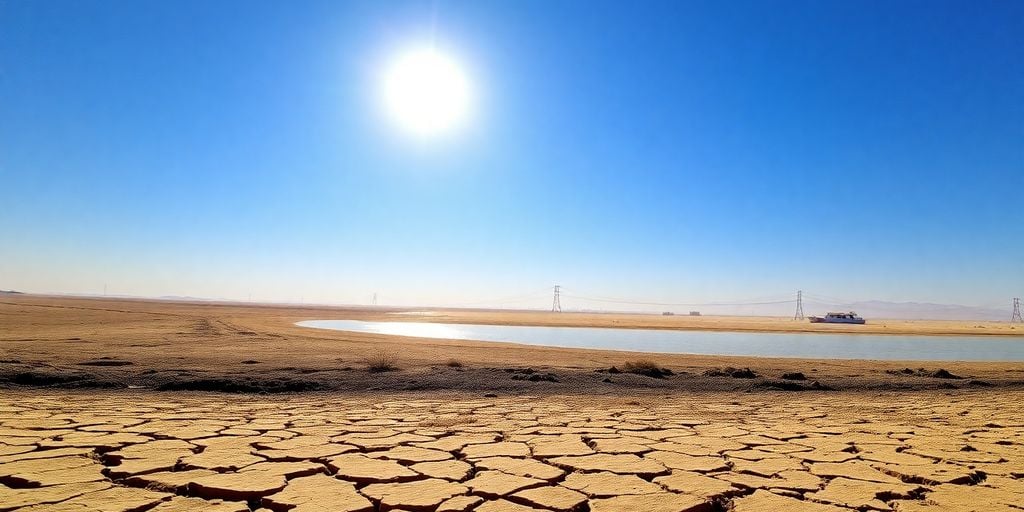The Western Balkans are currently grappling with a severe drought and widespread water restrictions, triggered by an intense heatwave. Temperatures have soared, reaching up to 40 degrees Celsius (104 degrees Fahrenheit) in some areas, leading to critically low river levels, agricultural distress, and significant impacts on power generation across the region.
Balkan Heatwave Triggers Severe Drought
The Western Balkans are experiencing an unprecedented heatwave, with temperatures consistently reaching extreme highs. Central Albania, for instance, recorded 40 degrees Celsius (104 degrees Fahrenheit) on Thursday, and meteorologists predict scarce rainfall until September. This prolonged dry spell follows a winter and spring with insufficient precipitation, leaving rivers and lakes critically low.
Key Takeaways
- Extreme Temperatures: Temperatures have hit 40°C (104°F) in central Albania, with similar highs across the region.
- Water Scarcity: Rivers are nearly dry due to a lack of rainfall since winter, leading to widespread water restrictions.
- Agricultural Impact: Crops are severely affected by the "extreme drought," prompting governmental intervention for irrigation.
- Energy Crisis: Hydropower-dependent nations like Albania face power production shortfalls, necessitating costly energy imports.
- Public Health Warnings: Health authorities advise staying indoors, avoiding direct sun, and maintaining hydration.
Widespread Water Restrictions and Agricultural Distress
The severe drought has necessitated drastic measures across the Western Balkans. Small towns and villages in Serbia are facing drinking water restrictions. In Kosovo, the capital Pristina’s large open-air Germia swimming pool, typically a popular summer destination, remains closed due to the inability to fill its 20,000 cubic meters (5.3 million gallons) of water. While it usually takes six days to fill, the drought means it would now take over three weeks.
Albanian authorities have launched projects to support agriculture, including diverting water from the Mat river to irrigate approximately 4,000 hectares (9,885 acres) of farmland. Serbia’s state meteorological institute has issued warnings about the "extreme drought" impacting national crops.
Impact on Power Generation
The drought has significantly affected power production, particularly in Albania, which heavily relies on hydropower stations. The national power corporation has already spent up to 60 million Euro ($70 million) on energy imports in the first half of the year to compensate for the shortfall. This highlights the vulnerability of the region’s energy infrastructure to climate-induced water scarcity.
Public Health and Safety Concerns
Health institutes across the region are urging residents to take precautions. People are advised to stay in shaded or air-conditioned areas, avoid direct sun exposure between 11 a.m. and 5 p.m., and ensure adequate fluid intake. Children, the elderly, and those with pre-existing conditions are particularly vulnerable and advised to stay home. The heatwave also increases the risk of wildfires, which are frequent in the region during hot, dry summers.
Sources
- Balkans braced for record-breaking heatwave, Reuters.
- Western Balkans face severe drought and water restrictions during heatwave, Toronto Star.
- Western Balkans region faces severe drought and water restrictions during heat wave, Jonesboro Sun.
- Water restrictions across Europe as intense heatwave hits region, The Independent.
- Western Balkans face severe drought and water restrictions during heatwave, The Spec.






